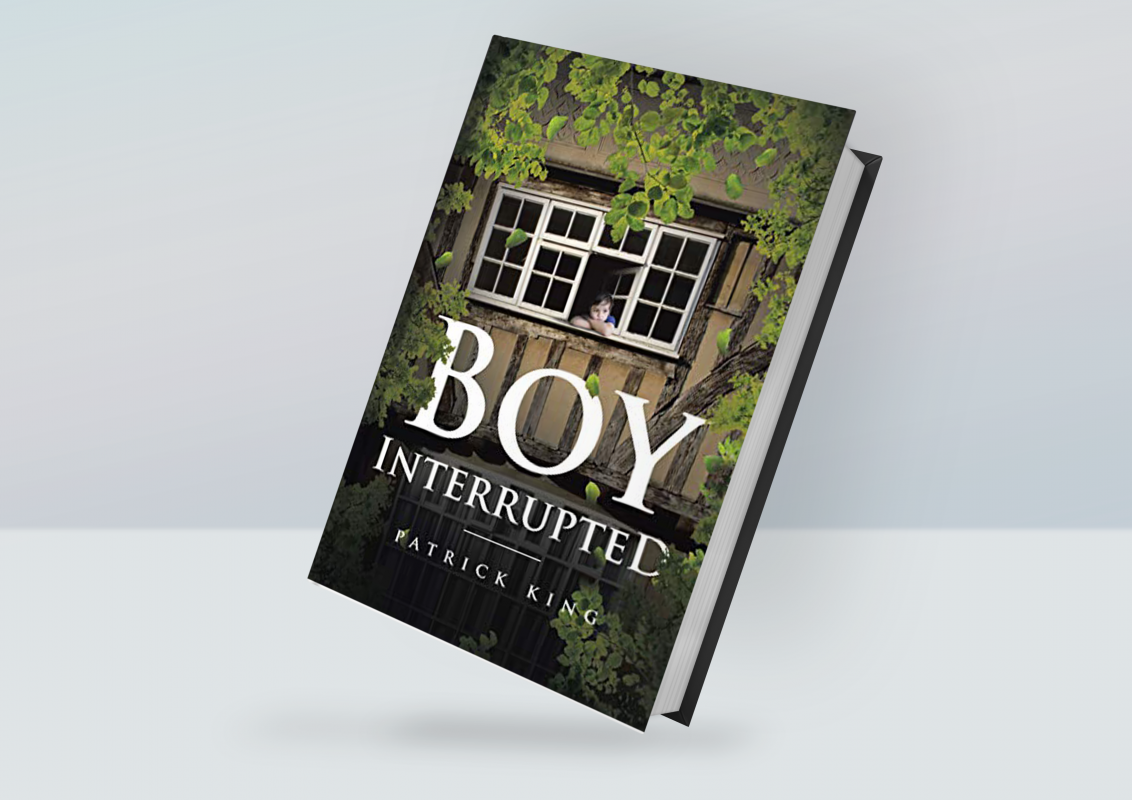For a tender age of about five years old, little Kenny has already experienced the horrors that none of his age would ever think of going through. But he endured for survival. Beneath those angelic eyes, one thing is for sure – little Kenny will come for them to serve justice with his own hands. Patrick King’s spell-binding portrayal in the making of a serial killer is almost impossible to ignore, it is intelligent, sexy, and dangerous.
Reading about this terrific story of a boy turned into an unspeakable monster is enough to make your skin crawl. King will bring you inside the mind of a killer where the dark psychology is buried.
Was your sole fascination with all things forensic the only inspiration for creating this book?
Of course not. I have been an avid science fiction fan since the tender age of ten years old. TV shows like “Twilight Zone,” “Outer Limits,” “One step beyond,” and “Alfred Hitchcock” were so indelibly imprinted on my mind as a child, that they became a part of me. Cheesy 1950’s horror films like “Them,” in which the little girl whose parents were so unceremoniously eaten by ants, tore my heart apart.
As an adult, the character Cole Sear in M. Night Shyamalan’s “Sixth Sense” and the robot character David in Steven Spielberg’s “A.I.” were so touching and real, they made me cry. I couldn’t help attaching that insanely innocent nature to my little Kenny Hanson. All three of those characters were part of him.
How did the writing of this book go?
If you mean, what was my process, the simplest explanation is that I have none.
My initial concept was a little boy who’d been damaged and the resulting psychotic break that occurred as a result of that damage. As each character came to mind and I introduced them into the tale, I allowed them to develop a life of their own. They seemed to evolve on their own.
Do all serial killers come from a rough childhood?
I am hardly qualified to answer that question. However, during my research, I discovered that a great many children who developed into sociopathic serial killers, had suffered severe psychological (and physical) abuse from either parents or other adults in their early years. That abuse is often a major contributing factor.
How do you deal with the emotional impact of a book (on yourself) as you are writing the story?
Great question. In my case, as the evil and sinister forces that surrounded little Kenny evolved, I found myself becoming angrier and angrier at the utter lack of humanity those characters embodied. At times, I had to put the story down, calm down, and come back to it later.
Do you think it is okay to empathize with a criminal if you relate to his reasons?
Absolutely. My deepest hope in telling the story of little Kenny was to arouse in the reader a sad but profound understanding of what it had taken to get him to that point in his life: the point at which his only choice was revenge.
I hear that serial killers mostly have a high IQ. Why is that?
I believe that people of lesser intelligence who have found themselves in similar circumstances, cannot see a way out of their depression and desperation. Suicide seems to be the only viable solution for them.
Smarter people, however, do not succumb so easily to a quick way out. Their minds work in a different way. Their natural creativity comes into play, sparked by their anger and hatred, and memories, resulting in a more “practical” solution.
Raif O’Donnell has been correct with his hypothesis since the beginning. Is it possible that a prediction of the perpetrator can be so accurate in real life?
Yes and no. While psychological profiling has made great strides in recent years with the FBI and the American Psychological Foundation, it is not an exact science. In my story, Raif happened to be right in his assumptions.
What do you want your readers to realize from this novel?
Apart from being utterly entertained and fascinated to the point of no return, I’d wish that my readers would come to realize that human nature runs the gamut: that it is a vast and often incomprehensible experience that cannot be boiled down to a few narrow concepts. If all of us would simply look around, actually observe the behavior of those around us—our neighbors, friends, co-workers, and relatives—we might “pick up on” certain “proclivities” that are not so “normal.” Quote, quote and quote!
What was the most challenging part of writing this book?
For me, the most challenging aspect of writing this book was to keep it short. I fear that I have failed miserably in this endeavor. 400 pages is a lot to ask of any reader of fiction. Myself included! Though try as I may have tried, certain scenarios and characterizations could not be shortened if the impact and emotional responses of those scenes were to be realized. But to my credit, I hasten to add, I got it down from 700 pages to 400! And that, dear reader, was a profound compromise on my soul!
Are you planning on writing any books in the future that you would like to share?
To be honest, I had previously felt that “Boy Interrupted” was a “One Trick Pony,” as the saying goes. Writing a novel was the last item on my “Bucket List” as an older man and I had never planned on writing another. However, the experience has compelled me to try again. I’m working on a story in which the future of mankind is revealed after the next apocalypse: World War Three. Whether or not I complete it, remains to be seen.
This book is available on Amazon, Barnes and Noble, iTunes, and Google Play.
Buy your own copy now!
